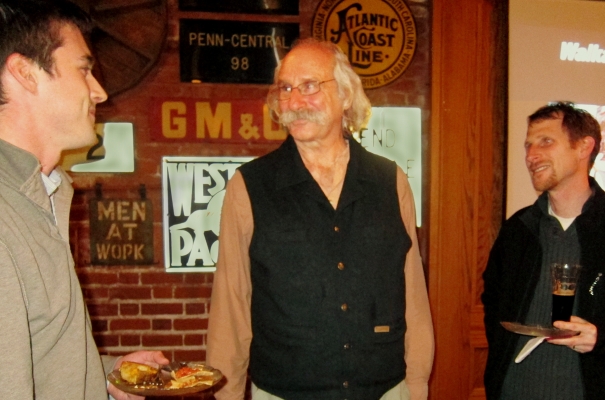Put roads on a diet and people will get healthier, walkability expert says

Bad streets don’t just create frustrating commutes, Dan Burden told a Eugene crowd Feb. 28. They also hurt our health, environment and economy.
Burden, executive director of the Walkable and Livable Communities Institute, spoke as part of the University of Oregon’s LiveMove Transportation Speaker Series. A national authority on bicycle and pedestrian programs, street corridor and intersection design, and traffic calming, Burden started advocating for active transportation 38 years ago.
A healthy and sustainable community is a walkable one, Burden said, and transportation and land-use planning both should serve that goal. “If you want to be a transportation planner, you’d better take a couple courses in land use,” he said. “And if you want to be a land-use planner, you’d better take a couple courses in transportation.”
Well-designed streets are key to healthy communities, Burden said. Wide sidewalks, good landscaping, buffer zones between cars and pedestrians and short crosswalks all create an environment that gets more people walking. In turn, he said, businesses will build to take advantage of foot traffic and existing owners will see their property values rise.
Although established communities offer few opportunities to plan streets from scratch, there are still opportunities to incorporate good design, Burden said. Bad streets can be put on a diet, he said..jpg) So-called “road diets” shrink or eliminate auto lanes to provide better-landscaped, safer and wider sidewalks and bikeways.
So-called “road diets” shrink or eliminate auto lanes to provide better-landscaped, safer and wider sidewalks and bikeways.
The Walkable and Livable Communities Institute, based in Port Townsend, Wash., trains leaders to make communities walkable and bicycle- and transit-friendly. The Institute holds walking audits, workshops, plan reviews and offers design assistance.
OTREC funding supports the LiveMove student group.
